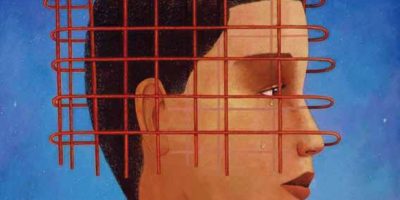Generations of Women Rabbis
Twenty-four years after the Jewish Theological Seminary finally ordained a woman Conservative Rabbi, that woman — Amy Eilberg — and 79 other women rabbis from all over the United States were back at the seminary in New York City for “Leadership Presence: Women’s Ways in the Rabbinate.” The November conference, sponsored by the Rabbinical Assembly, was one of the rare meetings convened specifically for women Conservative rabbis. It attracted nearly one-third of the 256 women members of the R.A., the worldwide association of Conservative rabbis.
Women comprise about 16 percent of the 1,600 R.A. membership, and they are clearly making inroads in the organizations of Conservative Judaism, with Rabbi Julie Schonfeld, executive vice president of the R.A., very visible at the conference sessions along with Rabbi Ellen S. Wolintz-Fields, chair of the R.A. Women’s Committee.
Scholarship, humor and the need to get out there and negotiate for salaries equal to that of male rabbis set the tone, with workshops on “My Rabbinic Path: An Interactive Exercise in Personal Strategic Planning,” executive coaching sessions to “Create an Impact,” and “Resiliency in Today’s World.”
Rabbi Amy Kalmanofsky, assistant professor of Bible at JTS, brought in the Witch of Ein Dor as the long-shot precedent for religious professional women of the Hebrew Bible. (In the midst of battle, King Saul contacted the witch to confer with the spirit of the deceased Prophet Samuel; Samuel 1, chapter 28.)
The joy that the women of this smart and diverse cohort seemed to take in one another was clear when they defined their expertise at a session on writing op-eds titled “Voices of Women Rabbis Can Make an Impact in the Public Sphere: How to Write to Change the World.” Surpisingly, none of the participants listed “rabbi” as part of her qualifications at the session led by Katie Orenstein of the Op-Ed project (www.theopedproject.org). As conference organizer Wolintz-Fields said afterwards, “There are many different ways to show success in the rabbinate.” The fact that these pioneering women recognize that the title alone doesn’t define the person could well be one of the major improvements women rabbis are making.
“Celebrating the First Generation of Women Rabbinical Assembly Members,” Rabbi Eilberg, now director of the Interfaith Conversations Project at the Jay Phillips Center for Interfaith Learning in St. Paul, spoke of learning from the next generation of women rabbis. Rabbi Nina Bieber Feinstein, lecturer in practical rabbinics at American Jewish University in Los Angeles, expressed both joy in her work and frustration that women rabbis who work part time are still being told, “You haven’t really worked.”
In fact, many of the women attending the conference are part-time rabbis who were able to attend the conference thanks to travel stipends provided through the Jewish Women’s Foundation of New York, which funded the conference.
A blast from the past, when the Women’s Movement first discovered assertiveness training, blew through the conference in a session on negotiations led by Sara Laschever, co-author of Women Don’t Ask: Negotiations and the Gender Divide. She drew a sigh of recognition with her opener: “Women are great at negotiating — for others.” In the words of one seemingly assertive and successful congregational rabbi, “I could have used this 20 years ago.” Another woman drew appreciative laughs when she told how she had gently shamed her synagogue’s board into paying her a salary equal to a male rabbi’s by pointing out, “You wouldn’t want the community to know you don’t treat women on a par with men.”
For Rabbi Ayelet Cohen of Manhattan’s Congregation Beth Simchat Torah, a.k.a. the “Gay Synagogue,” now that women are widely accepted as Conservative rabbis the next challenge is clear. “Gay, lesbian, bisexual and transgender people in the Conservative rabbinate are where straight women were 20 years ago. As we stand on the shoulders of those who came before us, it’s our generational responsibility to advocate for openly lesbian and gay rabbis.”


